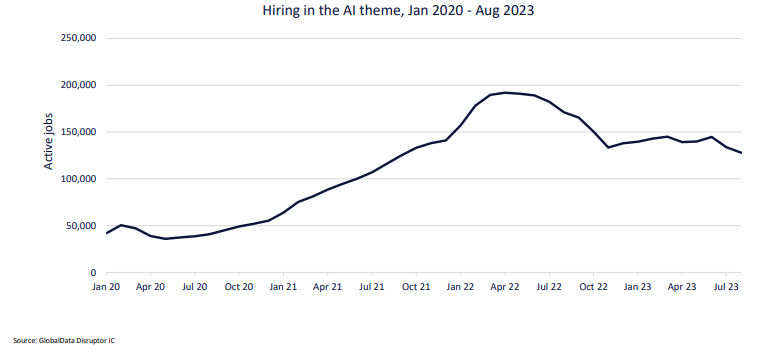
The UK government has announced a £118m fund towards UK universities and research in order to avoid a future AI skills gap.
The money will go towards 15 new scholarships to help students learn AI skills at the UK’s top universities. Additionally, part of this money will also fund a new VISA scheme that will help make the UK a more attractive and easy location for the global AI talent pool. Over £1m will go towards the AI Future Grants scheme to help AI talent with relocation costs, marking the UK as a global destination for AI workers.
Citing the fast pace of AI development and deployment, the UK government states that it is essential to fund more students into postgraduate courses to ensure enough skilled AI workers will be available to businesses in the future.
“The plans we are announcing today will future proof our nation’s skill base,” Secretary of State Michelle Donelan stated, “meaning British people can reap the benefits of AI as it continues to develop.”
According to research company GlobalData’s job database, the most active AI-related job titles in hiring between 2020 and 2023 were testers, programmers and software developers. Demand for data scientists had also risen dramatically, with over 100,000 data scientist job postings closed within the last three years.
Overall, GlobalData noted that AI hiring remained a resilient hub of activity despite considerable layoffs in Big Tech companies such as Amazon, Microsoft and Meta.
How well do you really know your competitors?
Access the most comprehensive Company Profiles on the market, powered by GlobalData. Save hours of research. Gain competitive edge.

Thank you!
Your download email will arrive shortly
Not ready to buy yet? Download a free sample
We are confident about the unique quality of our Company Profiles. However, we want you to make the most beneficial decision for your business, so we offer a free sample that you can download by submitting the below form
By GlobalData
The UK’s funding coincided with several measures by the government to rollout AI technology across the public sector. Plans to incorporate AI to boost productivity within teaching and job centres were announced, as well as a £21m rollout of AI technology into the NHS.
AI is now disrupting industries outside of technology. IT talent is now being hired in businesses that previously had never needed technology workers.
Such widespread demand has not gone unnoticed, and back in early October this year Fujitsu’s chief technology officer Vivek Mahajan warned that the world may soon face a critical shortage of AI workers.
A speedy rollout of AI alongside the high barrier to entry (such as a postgraduate degree) may mean that soon many industries will struggle to hire and keep talented AI workers.
Recent research by digital workflow company ServiceNow also found that 54% of UK workers felt as though their current formal education did not prepare them for working life, whilst a further 73% stated that AI and coding skills should become mandatory in education for all students.
As the UK funds its future AI talent, it may become necessary for workers in all industries to upskill into AI and coding.







